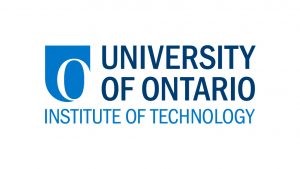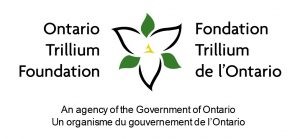New research partnership to address student mental health challenges
Study will be a risk factor barometer and help future intervention methods
January 24, 2017

The Canadian Mental Health Association (CMHA) says up to 40 per cent of Canadian university students experience symptoms of depression, anxiety and coping difficulty, particularly during their first year of university. Researchers know little about the origin, progression and consequences of these mental health issues.
In a search for answers and to develop new approaches to addressing these serious challenges, the Faculty of Health Sciences at the University of Ontario Institute of Technology (UOIT) is partnering with CMHA Durham on a new research project that will survey hundreds of undergraduate students.
Led by Pierre Côté, DC, PhD, Canada Research Chair in Disability Prevention and Rehabilitation, Faculty of Health Sciences and Paul Secord, Director, Programs and Clinical Services, CMHA Durham, the project received support from a new funding grant announced January 17 by the Ontario Trillium Foundation (OTF).
The pilot project survey during the 2017-2018 academic year will examine the association between modifiable lifestyle factors among students, including:
- exercise
- food insecurity
- sleep behaviour
- socio-demographic variables on student mental health
- substance use
As this study breaks new ground on student mental health, it will provide much-needed evidence to guide future research in this area.
OTF has a mandate to identify the most important changes that should happen in Ontario over the next decade for communities to be healthier and more vibrant.
The UOIT-CMHA partnership is an exciting development in advance of the university’s 2017 Futures Forum on Community Mental Health and Wellness on Wednesday, May 10.
Quotes
“This project will describe the burden of mental health issues within the student body and provide evidence to investigate risk factors that will help develop future health and wellness programs. The university is proud to be part of this collaborative effort with CMHA Durham and the Ontario Trillium Foundation.”
-Dr. Pierre Côté, Canada Research Chair in Disability Prevention and Rehabilitation, and Associate Professor, Faculty of Health Science, University of Ontario Institute of Technology (Co-principal Investigator)
“This project will advance the understanding of student mental health, how to better manage the issues, position service providers to educate the community regarding mental health issues in youth, and pursue and provide evidence-based interventions.”
-Paul Secord, Director, Programs and Clinical Services, Canadian Mental Health Association of Durham (Co-principal Investigator)
Related links
- Dr. Pierre Côté research profile
- CMHA Durham news release (January 19, 2017)






